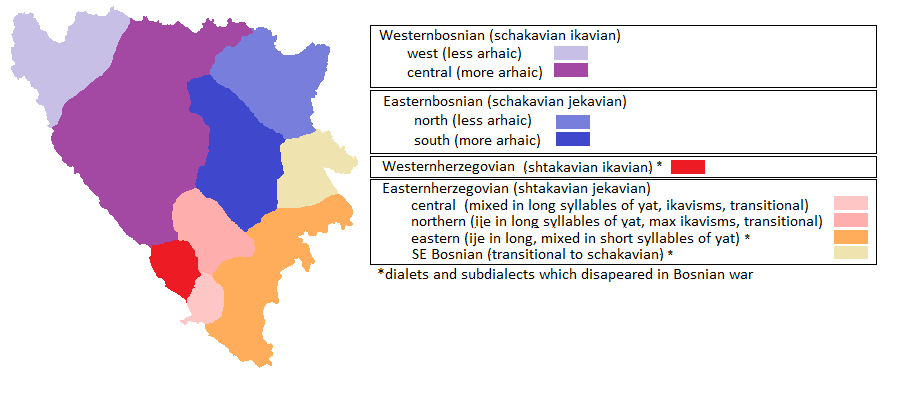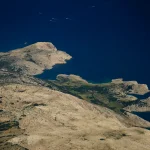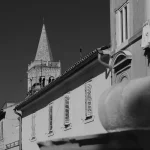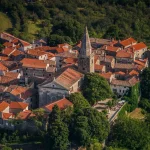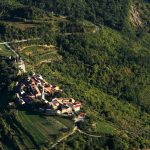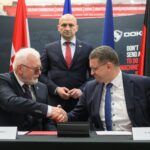We’ve explored many of the dialects, subdialects and indeed languages in their own right as some linguists consider them to be which are spoken across modern Croatia. From the Dubrovnik subdialect (Ragusan) in the extreme south of Dalmatia to Northwestern Kajkavian in areas like Zagorje, the ways in which people speak in this country deviate from what we know as standard Croatian language enormously. That goes without even mentioning much about old Dalmatian, Zaratin, once widely spoken in and around Zadar, Istriot, or Istro-Venetian.
Standard Croatian is far from the only language or dialect spoken in this small country, and some have more rights than others based on their level of dispute and controversy. While some, such as Istrian-Albanian, are now extinct as a result of a lack of preservation and/or a rapidly dwindling number of speakers, others are widely spoken but attract significant debate. The so-called Bosnian language is one of them.
Bosnian, Bosniak, Bošnjački – the basics
Let’s start with the basics and say that in Croatia, the Bosnian language is usually called the Bosniak language. As I touched on above, this language attracts debate very often, and as such, you’ll likely face corrections no matter what you call it. The issue with this has little to do with the formation of spelling of the word, but instead with historical ties to the country (Bosnia), and the terminology used when referring to it.
Bosnian (as it is called in Bosnian), or Bosniak (as it is called in Croatian), as you might have guessed, is one of the three official languages spoken in neighbouring Bosnia and Herzegovina, the other two being Croatian and Serbian. The use of Bosnian, despite being a language which has no difficulty in attracting linguistic arguments, especially here in Croatia, is widespread, with over two million individuals spanning the territories of Bosnia and Herzegovina, Croatia, Kosovo, Montenegro and Serbia speaking it.
Members of the diaspora, along with their descendents, across Western Europe, North America and even much closer to home in Turkey, also speak Bosnian, although their precise numbers have never been confidently determined.
Bosnian is very similar to Croatian and Serbian, but developed down its own path as a result of Ottoman Turkish influence, which reigned strong in Bosnia and Herzegovina for a very long time. There are also Arabic and modern Turkish influences thrown in there, as well. Despite having an array of influences thrown into the mix, Bosnian is primarily based on four main subgroups of the Shtokavian dialects, with Shtokavian also being one of the pillars of standard Croatian, alongside Cakavian and Kajkavian.
A brief history and a (past) Croatian connection
On a small scale only, Bosnian leans on the Ijekavian pronunciation of modern Serbian but there are an abundant use of Turkish words to be found, and anyone with an interest in language and knowledge of Croatian will be able to instantly point them out. The language evolved and changed throughout the centuries, with the first Bosnian-Turkish glossary being published in 1631. Fast forward a few years to the post-Ottoman occupation period, more specifically to the nineteenth century, the much more extensive cultural activity of Bosniaks appeared in a language that was constantly referred to as something different: Serbo-Croatian, Croatian, Serbian, and then Bosnian. The Austro-Hungarian monarchy’s long rule also led to the predominance of the Latin script across its former territories (which included modern Croatia in a very large part), giving birth to a (by then) much more visible Bosniak language, which was much, much more like Croatian than Serbian back during those times.
Where can the largest number of Bosnian speakers be found in the modern day?
In this day and age, the largest number of Bosnian speakers live in Bosnia and Herzegovina – more precisely in the cities of Sarajevo, Bihac, Tuzla and Zenica, with some other locations also having a significant number of people who claim it as their mother tongue. Just over 1.5 million people who claim their mother tongue to be Bosnian live in Bosnia and Herzegovina.
Disputes about the name, and where Croatia stands when it comes to Bosnian
There are a considerable number of people (just under 10,000 of them) who live in the Republic of Croatia who consider their mother tongue to be Bosnian, and the name ”Bosniak” as Croatia typically refers to it, has and continues to be the subject of argument and debate from not only those in the world of linguistics, but also from politicians. Bosnian politicians believe Croatia should refer to it as Bosnian, and not Bosniak, and there are several Croatian linguists who very staunchly agree with the sentiment. Most Croatian language experts believe that nothing other than ”Bosnian language” will do, and that such a title is the only appropriate one. Some linguists and experts who make up that very same group believe that Bosnian and Bosniak are actually two different things entirely.
Just to add to the confusion, in Croatia’s 2001 census, this language is referred to as ”bošnjački”, while in the one which was carried out in 2011, the term ”bosanski” is used, only furthering the ”Bosniak or Bosnian” debate. Croatian state institutions, it seems, can’t seem to make their mind up on this issue either.
For more on languages spoken in Croatia, as well as standard Croatian, dialects, subdialects and extinct languages, make sure to keep up with our dedicated lifestyle section.

